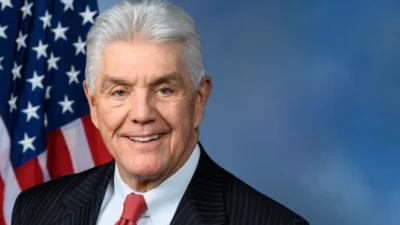Sen. Chuck Grassley, chairman of the Committee on Finance, today made the following comment on GAO’s survey, “Nonprofit Hospital Systems: Survey on Executive Compensation Policies." The survey, GAO-06-907R, is available at www.gao.gov.
“I appreciate Chairman Thomas’ working with GAO to examine the important issues of governance and compensation policies of nonprofit hospital systems. This is area is of particular interest to me.
This GAO report confirms that there’s still much work to be done. We need to ensure that charitable assets benefit those who need them most rather than those who need them least.
“It’s disappointing that 35 percent of the hospitals failed to respond to GAO’s questions. And of those that responded, some failed to respond to certain important questions. I hope this isn’t a signal of what to expect in further attempts to gain a better understanding of executive compensation and hospital practices. Partial answers are unacceptable, and the Internal Revenue Service should not allow partial answers when the hospitals respond to the IRS’ survey. The public reasonably expects and needs transparency and cooperation from all non-profits, not just those that choose to cooperate.
“In my experience reviewing charities that have failed their mission, poor board governance unites them all. When the board members fail to understand the gravity of the task before them, charities suffer. Throughout the GAO survey there are repeated instances in which it appears that the hospital boards are not aware of their roles. For example, nearly one-third of the hospitals that responded had no written criteria for selecting members of the body that governs executive compensation. And more disturbing, in 17 percent of the cases, the CEO or other top paid executives were voting members of the executive compensation body. In essence, they were voting to give themselves their salaries and benefits. Critical audits of personal entertainment expenses, spousal travel, automobile expenses, and social club dues are not being performed on a regular basis. And 90 percent of the hospitals reported that they did not approve the CEOs’ travel expenses prior to their being incurred.
“Another area regarding executive compensation that was highlighted in the GAO report that concerns me is that an overwhelming majority (almost 80 percent) of the hospitals reported providing supplemental executive retirement plans (SERPs) to the CEO and other top paid executives. We need to look at this widespread practice because it poses the opportunity for nonprofits to pay exorbitant deferred compensation amounts in addition to providing more traditional retirement plan benefits to these executives.
“Tax-exempt organizations are responsible for spending the public’s money wisely. I question whether funding SERP plans and paying executives’ tax return preparation, attorney fees and financial and tax planning fees is a wise use of the public’s contributions and support of such organizations. With tax-exempt hospitals, this money is not being spent to provide charity care or community benefits. It’s clear much more needs to be done to ensure that non-profit hospital executives are not being paid extravagant amounts and are being held accountable for what they’re paid.
“Most of the hospitals reported satisfying the requirements for Section 4958 excess benefit transaction ‘rebuttable presumption’ procedures established in Treasury regulations. Nonetheless,
a significant number of these organizations are providing benefits that usually are available only to the top rung of the employee ladder in corporate America. This suggests major flaws in the use of the rebuttable presumption as a means to ensure that executive compensation paid to officers and directors is fair and reasonable to the exempt organization. As my staff and the staff of the Joint Committee on Taxation have recommended, reforms to the rebuttable presumption process are warranted."
Source: Ranking Member’s News








